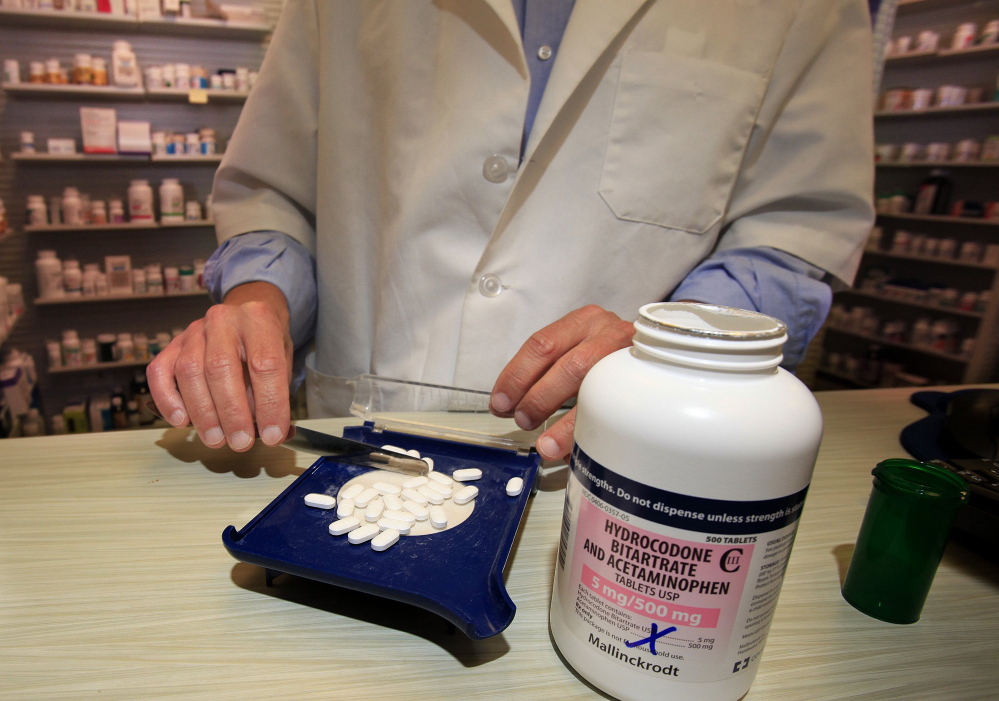Americans consume opioid painkillers at twice the rate of our neighbors in Canada.
Since it can’t be because people on this side of the border are in twice as much pain as Canadians, we have to conclude that there is difference in the way that pain medication is distributed in the two countries.
And that difference is important to understand. America is in the middle of a prescription opioid epidemic. There are more than 2 million people addicted to pain medication and more people die of drug overdoses — mostly caused by prescription drugs — than are killed in car crashes.
In Maine and other Northeastern states, we have seen prescription painkillers become the gateway drug to heroin addiction, as users move from pills to the dangerous street drug because it’s less expensive and more available.
It is a complicated, multifaceted problem, but it is clear that well-intentioned drug prescribing practices have an unintended impact on the abuse of these medications, which is leading to so many problems.
Questioning these practices is what’s behind a letter written by Sen. Susan Collins and signed by 26 of her colleagues (including Sen. Angus King) which asks health regulators whether it’s wise to use patient satisfaction surveys on pain treatment as one of the measures to evaluate hospitals’ performance.
Currently, hospitals are judged on four quality measures, including patient experience of care. The score the hospital receives will affect how the institution is reimbursed from Medicare. Since there is no objective measure of pain, that part of the evaluation relies on patient surveys.
Before being discharged from a hospital, a patient is asked, “How often was your pain well controlled?” and “How often did the hospital staff do everything they could to help you with your pain?”
Collins and the other senators question whether it’s wise to put such a high premium on these subjective judgments. Prompt pain relief is appropriate for some patients, but overuse can cause harm and a person in pain will not always be the best judge of whether the care was appropriate. If making sure that patients leave the hospital happy plays a role in the institutiton’s reimbursement, it could create an incentive for clinicians to over prescribe.
“The evidence suggests that physicians may feel compelled to prescribe opioid pain relievers in order to improve hospital performance on quality measures,” the senators wrote. “We are concerned that the current evaluation system may inappropriately penalize hospitals and pressure physicians who, in the exercise of medical judgment, opt to limit opioid pain relievers to certain patients and instead reward those who prescribe opioids more frequently.”
With the nation facing a crisis caused by the over-prescription of painkillers, we should not have a medical financing system with built-in incentives for this kind of undesirable behavior. The senators are asking the right questions and they deserve an answer.
Send questions/comments to the editors.



Success. Please wait for the page to reload. If the page does not reload within 5 seconds, please refresh the page.
Enter your email and password to access comments.
Hi, to comment on stories you must . This profile is in addition to your subscription and website login.
Already have a commenting profile? .
Invalid username/password.
Please check your email to confirm and complete your registration.
Only subscribers are eligible to post comments. Please subscribe or login first for digital access. Here’s why.
Use the form below to reset your password. When you've submitted your account email, we will send an email with a reset code.